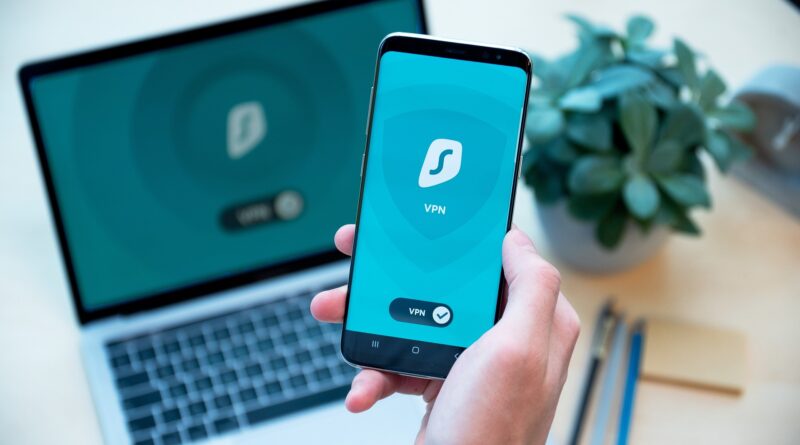Kas yra VPN ir kaip tai veikia?
VPN reiškia „virtualus privatus tinklas”. Jis užšifruoja jūsų interneto srautą ir užmaskuoja jūsų internetinę tapatybę. Dėl to trečiosioms šalims sunkiau sekti jūsų veiklą internete ir pavogti duomenis.
Kaip veikia VPN? VPN slepia jūsų IP adresą leisdamas tinklui peradresuoti jį per specialiai sukonfigūruotą nuotolinį serverį, kurį valdo VPN priegloba. Tai reiškia, kad, jei naršote internete naudodami VPN, VPN serveris tampa jūsų duomenų šaltiniu. Tuomet jūsų interneto paslaugų teikėjas (IPT) ir kitos trečiosios šalys negali matyti, kuriose svetainėse lankotės arba kokius duomenis siunčiate ir gaunate internetu. VPN veikia kaip filtras, net jei kas nors gautų jūsų duomenis, tai būtų nenaudinga.
Kodėl turėtumėte naudoti VPN ryšį? Jūsų jūsų interneto paslaugų teikėjas (IPT) paprastai nustato jūsų ryšį, kai prisijungiate prie interneto. Jis seka jus per IP adresą. Jūsų tinklo srautas nukreipiamas per jūsų IPT serverius, kurie gali registruoti ir rodyti viską, ką darote prisijungę. Jūsų IPT gali atrodyti patikimas, tačiau jis gali bendrinti jūsų naršymo istoriją su reklamuotojais, policija ar vyriausybe ir kitomis trečiosiomis šalimis. Interneto paslaugų teikėjai taip pat gali tapti kibernetinių nusikaltėlių atakų aukomis: jei į juos bus įsilaužta, jūsų asmeniniai ir privatūs duomenys gali būti pažeisti. Tai ypač svarbu, jei reguliariai jungiatės prie viešųjų „Wi-Fi“ tinklų. Niekada nežinote, kas gali stebėti jūsų interneto srautą ir ką jie gali pavogti iš jūsų, įskaitant slaptažodžius, asmeninius duomenis, mokėjimo informaciją ar net visą jūsų tapatybę.
Ar taip pat galiu naudoti VPN savo išmaniajame telefone ar kituose įrenginiuose? Taip, išmaniesiems telefonams ir kitiems prie interneto prijungtiems įrenginiams yra daugybė VPN parinkčių. VPN gali būti būtinas jūsų mobiliajam įrenginiui, jei jį naudojate mokėjimo informacijai ar kitiems asmeniniams duomenims saugoti ar net tiesiog naršyti internete. Daugelis VPN teikėjų taip pat siūlo mobiliuosius sprendimus – daugelį jų galima atsisiųsti tiesiai iš Google Play arba Apple App Store, pvz., Kaspersky VPN Secure Connection.
Ar VPN tikrai toks saugus? Svarbu pažymėti, kad VPN neveikia kaip visapusiška antivirusinė programinė įranga. Nors tai apsaugo jūsų IP ir užšifruoja jūsų interneto istoriją, VPN ryšys neapsaugo jūsų kompiuterio nuo išorės įsibrovimo. Norėdami tai padaryti, tikrai turėtumėte naudoti antivirusinę programinę įrangą.
VPN ryšys sukuria saugų ryšį tarp jūsų ir interneto. Per VPN visas jūsų duomenų srautas nukreipiamas per užšifruotą virtualų tunelį. Tai užmaskuoja jūsų IP adresą, kai naudojatės internetu, todėl jo vieta tampa nematoma visiems. VPN ryšys taip pat apsaugotas nuo išorinių atakų. Taip yra todėl, kad tik jūs galite pasiekti duomenis šifruotame tunelyje, o niekas kitas negali pasiekti, nes neturi rakto. VPN leidžia pasiekti regioniniu mastu apribotą turinį iš bet kurios pasaulio vietos. Daugelis srautinio perdavimo platformų pasiekiamos ne visose šalyse. Vis tiek galite juos pasiekti naudodami VPN.
What is a VPN and how does it works?
VPN stands for “virtual private network”. It encrypts your internet traffic and masks your online identity. This makes it harder for third parties to track your online activity and steal your data.
How does a VPN work? A VPN hides your IP address by allowing the network to redirect it through a specially configured remote server managed by the VPN host. This means that if you surf the internet using a VPN, the VPN server becomes the source of your data. Your Internet Service Provider (ISP) and other third parties are then unable to see which websites you visit or what data you send and receive online. The VPN acts as a filter, so even if someone were to get your data, it would be useless.
Why should you use a VPN connection? Your Internet Service Provider (ISP) usually detects your connection when you go online. It tracks you via your IP address. Your network traffic is routed through your ISP’s servers, which can log and display everything you do while connected. Your ISP may seem trustworthy, but it may share your browsing history with advertisers, the police or government and other third parties. Internet service providers can also fall victim to cybercriminal attacks: if they are hacked, your personal and private data could be compromised. This is especially important if you regularly connect to public Wi-Fi networks. You never know who might be monitoring your internet traffic and what they might steal from you, including passwords, personal data, payment information or even your full identity.
Can I also use a VPN on my smartphone or other devices? Yes, there are many VPN options for smartphones and other internet-connected devices. A VPN may be necessary for your mobile device if you use it to store payment information or other personal data, or even just to surf the web. Many VPN providers also offer mobile solutions – many can be downloaded directly from Google Play or the Apple App Store, such as Kaspersky VPN Secure Connection.
Is a VPN really that secure? It’s important to note that VPNs don’t work like full-fledged anti-virus software. While it protects your IP and encrypts your internet history, a VPN connection doesn’t protect your computer from outside intrusion. For that, you really should use antivirus software.
A VPN connection creates a secure connection between you and the internet. With a VPN, all your traffic is routed through an encrypted virtual tunnel. This masks your IP address when you are using the internet, making its location invisible to everyone. The VPN connection is also protected against external attacks. This is because only you can access the data in the encrypted tunnel and no one else can because they don’t have the key. A VPN allows you to access regionally restricted content from anywhere in the world. Many streaming platforms are not available in all countries. You can still access them using a VPN.
foto Dan Nelson from Pixabay

